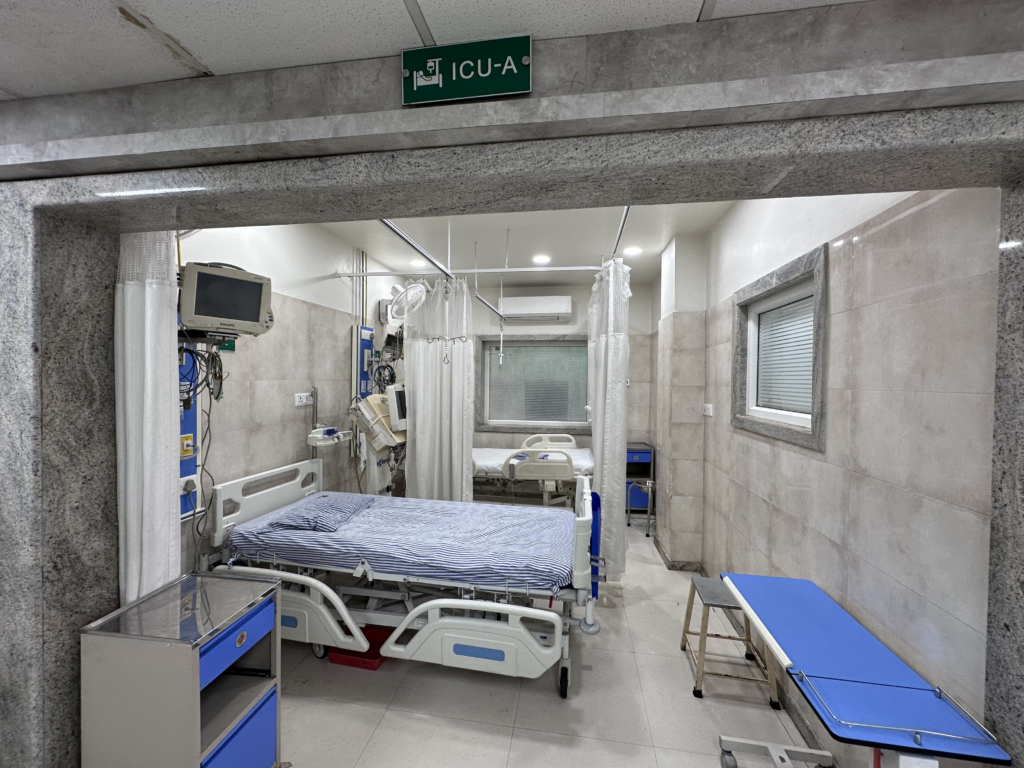Hepatobiliary Medicine: Care for the Liver, Bile Ducts, and Gallbladder
The hepatobiliary system plays a crucial role in digestion, metabolism, and the detoxification of harmful substances. Hepatobiliary medicine focuses on conditions affecting the liver, bile ducts, and gallbladder, offering advanced treatments and interventions to manage these complex diseases.
Key Areas in Hepatobiliary Medicine
- Liver Diseases: Hepatologists treat a wide range of liver conditions, including hepatitis (viral, autoimmune, and alcoholic), fatty liver disease, cirrhosis, and liver cancer. Early detection and intervention are critical for managing liver disease and preventing progression to more severe stages.
- Bile Duct Disorders: Conditions such as bile duct stones (choledocholithiasis), strictures, and cholangiocarcinoma (bile duct cancer) are managed through minimally invasive procedures like endoscopic retrograde cholangiopancreatography (ERCP) and surgical interventions.
- Gallbladder Diseases: Gallstones and cholecystitis (inflammation of the gallbladder) are common issues. Treatments range from medication management to laparoscopic cholecystectomy, a minimally invasive surgery to remove the gallbladder.
- Pancreatic Disorders: Hepatobiliary specialists also address pancreatic diseases, including pancreatitis and pancreatic cancer. Advanced imaging techniques and surgical procedures are employed to diagnose and treat these conditions effectively.
Gastroenterology: Comprehensive Care for the Digestive Tract
Gastroenterology encompasses the diagnosis and treatment of diseases affecting the entire digestive tract, from the esophagus to the rectum. Gastroenterologists are experts in managing a variety of GI disorders, providing patient-centered care that enhances digestive health and quality of life.
Emergency Cases
Please feel welcome to contact our friendly reception staff with any general or medical enquiry call us.
Opening Hours
Dr. Akanksha Singh
Monday – Friday 8.00 – 7:00 pm
Monday – Friday 8.00 – 7:00 pm
Key Areas in Gastroenterology
- Esophageal Disorders: Conditions such as gastroesophageal reflux disease (GERD), Barrett’s esophagus, and esophageal cancer are managed through a combination of lifestyle modifications, medications, and endoscopic or surgical interventions.
- Stomach and Duodenal Diseases: Peptic ulcers, gastritis, and stomach cancer are common issues. Gastroenterologists use endoscopy for diagnosis and treatment, along with medication management to control symptoms and promote healing.
- Small Intestine Disorders: Diseases such as celiac disease, Crohn’s disease, and small intestine bacterial overgrowth (SIBO) require specialized care. Gastroenterologists use a variety of diagnostic tools, including capsule endoscopy and imaging studies, to manage these conditions.
- Colon and Rectal Disorders: Conditions such as irritable bowel syndrome (IBS), inflammatory bowel disease (IBD), colorectal cancer, and diverticulitis are treated through a combination of medication, endoscopic procedures, and surgery. Regular screening colonoscopies are essential for the early detection and prevention of colorectal cancer.
- Functional GI Disorders: Functional disorders like IBS and functional dyspepsia are managed through dietary modifications, medications, and behavioral therapies to improve symptoms and enhance quality of life.

Innovations and Advancements in Hepatobiliary and Gastroenterology
The fields of hepatobiliary medicine and gastroenterology are continuously evolving, driven by advancements in technology and research. These innovations have significantly improved diagnostic accuracy, treatment efficacy, and patient outcomes.
Key Innovations
- Advanced Endoscopy: Techniques such as endoscopic ultrasound (EUS), ERCP, and endoscopic mucosal resection (EMR) allow for precise diagnosis and treatment of GI and hepatobiliary diseases with minimal invasiveness.
- Liver Transplantation: For patients with end-stage liver disease or liver cancer, liver transplantation offers a life-saving option. Advances in surgical techniques, immunosuppressive therapies, and post-transplant care have improved success rates and patient survival.
- Biologic Therapies: For conditions like IBD and autoimmune hepatitis, biologic therapies target specific components of the immune system to reduce inflammation and control disease activity.
- Minimally Invasive Surgery: Laparoscopic and robotic-assisted surgeries offer effective treatment options for various GI and hepatobiliary conditions with reduced recovery times and lower complication rates.
- Personalized Medicine: Genetic and molecular profiling are increasingly used to tailor treatments to individual patients, particularly in cancer care. This personalized approach enhances treatment efficacy and reduces side effects.
Comprehensive and Multidisciplinary Care
Effective management of hepatobiliary and GI diseases requires a comprehensive and multidisciplinary approach. Collaboration among hepatologists, gastroenterologists, surgeons, radiologists, oncologists, dietitians, and other healthcare professionals ensures that patients receive the most comprehensive care possible.
Key Components of Comprehensive Care
- Integrated Care Teams: Multidisciplinary teams work together to develop and implement individualized treatment plans that address all aspects of a patient’s condition.
- Patient Education: Educating patients about their diseases, treatment options, and lifestyle modifications is essential for empowering them to take an active role in their care.
- Supportive Care: Providing psychological support, nutritional counseling, and pain management services is crucial for addressing the holistic needs of patients, particularly those with chronic or advanced diseases.
- Regular Monitoring and Follow-Up: Continuous monitoring and regular follow-up appointments are essential for assessing treatment effectiveness, managing complications, and adjusting treatment plans as needed.
Hepatobiliary & Gastroenterology at Kanishk Hospital
At Kanishk Hospital, our Hepatobiliary & Gastroenterology Department is dedicated to providing comprehensive care for patients with disorders of the liver, bile ducts, pancreas, and gastrointestinal tract. Led by a team of highly skilled hepatobiliary surgeons, gastroenterologists, and specialized healthcare professionals, we offer advanced diagnostic, therapeutic, and surgical services to ensure the best possible outcomes for our patients.
Hepatobiliary Services
- Expert Diagnosis and Treatment: Our hepatobiliary specialists are experts in diagnosing and managing a wide range of conditions affecting the liver, bile ducts, and pancreas. We utilize advanced imaging techniques, including ultrasound, CT scans, MRI, and endoscopic retrograde cholangiopancreatography (ERCP), to accurately diagnose conditions such as liver cirrhosis, hepatitis, gallbladder stones, and pancreatic diseases.
- Advanced Surgical Interventions: When surgical intervention is necessary, our hepatobiliary surgeons are skilled in performing complex procedures such as liver resections, pancreaticoduodenectomy (Whipple procedure), bile duct reconstructions, and laparoscopic surgeries. We emphasize minimally invasive techniques whenever possible to minimize recovery time and ensure optimal outcomes for our patients.
- Liver Transplantation: For patients with end-stage liver disease, our hospital offers comprehensive liver transplantation services. Our multidisciplinary team coordinates all aspects of care, from pre-transplant evaluation to post-transplant management, ensuring that patients receive the highest level of care and support throughout their transplant journey.

Gastroenterology Services
- Comprehensive Gastrointestinal Care: Our gastroenterologists specialize in diagnosing and treating a wide range of gastrointestinal conditions, including gastroesophageal reflux disease (GERD), inflammatory bowel disease (IBD), irritable bowel syndrome (IBS), gastrointestinal bleeding, and gastrointestinal cancers.
- Endoscopic Procedures: We offer a full spectrum of advanced endoscopic procedures, including colonoscopy, upper endoscopy (EGD), endoscopic ultrasound (EUS), and capsule endoscopy. These procedures allow us to visualize and diagnose gastrointestinal conditions with precision and perform therapeutic interventions such as polyp removal, stent placement, and tissue biopsy.
- Nutritional Counseling and Support: Our team includes dietitians who provide specialized nutritional counseling and support for patients with gastrointestinal conditions, helping them optimize their dietary choices to manage symptoms and improve overall health.
Why Choose Kanishk Hospital for Hepatobiliary & Gastroenterology?
- Specialized Expertise: Our team of hepatobiliary surgeons and gastroenterologists are leaders in their fields, bringing extensive experience and expertise to every case.
- State-of-the-Art Facilities: We utilize the latest technology and advanced surgical techniques to ensure precise diagnoses and effective treatments.
- Patient-Centered Care: We prioritize our patients’ comfort and well-being, offering compassionate care and personalized treatment plans.
- Comprehensive Care: Our department provides comprehensive care from diagnosis through treatment and follow-up, ensuring continuity of care and optimal outcomes.
Conditions We Treat
- Liver cirrhosis
- Hepatitis (viral and autoimmune)
- Gallbladder stones
- Pancreatitis
- Gastroesophageal reflux disease (GERD)
- Inflammatory bowel disease (IBD)
- Irritable bowel syndrome (IBS)
- Gastrointestinal cancers
Experience Exceptional Hepatobiliary & Gastroenterology Care
At Kanishk Hospital, we are dedicated to providing exceptional care for patients with hepatobiliary and gastrointestinal disorders. Our commitment to excellence, combined with our compassionate approach, ensures that you receive the best possible care every step of the way.
Discover advanced hepatobiliary and gastroenterology care at Kanishk Hospital. Contact us today to schedule a consultation and take the first step toward better digestive health and liver function.

